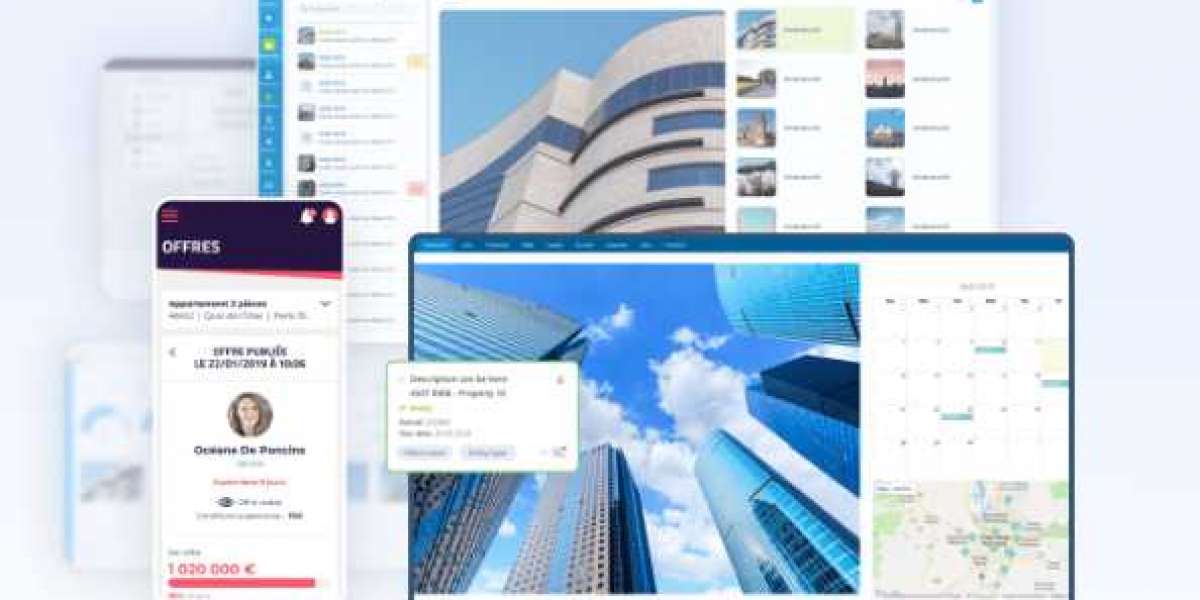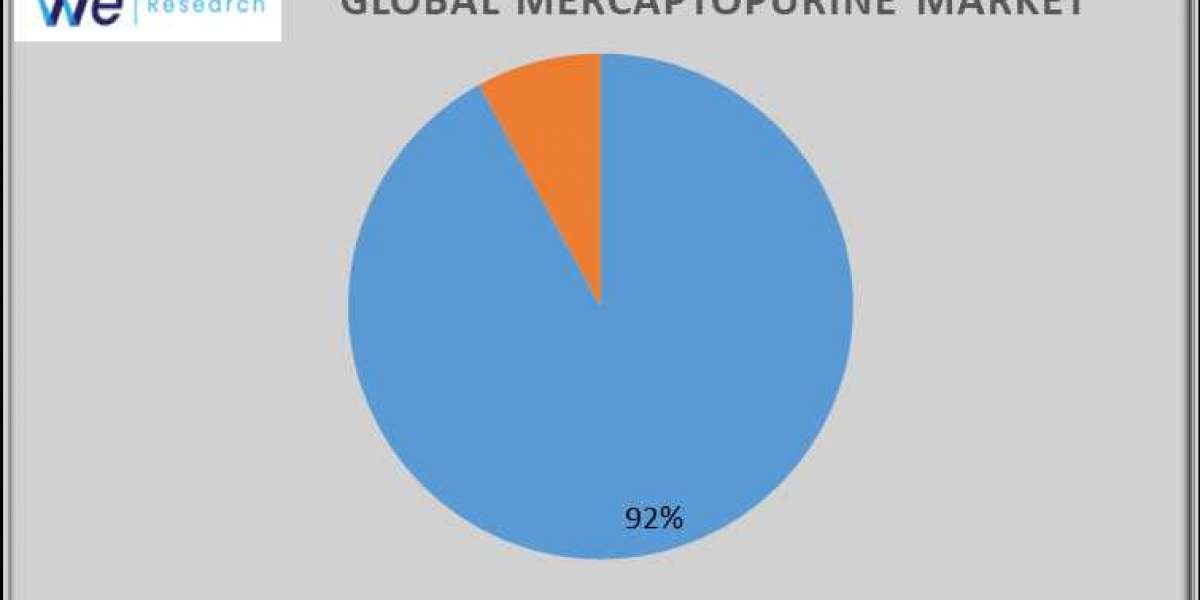As the real estate industry continues to evolve, the need for effective property management solutions has never been more crucial. Property management software (PMS) has become an indispensable tool for property managers, landlords, and real estate companies, enabling them to streamline operations, improve tenant relations, and optimize financial performance. This article explores the significance of property management software development services, essential features, benefits, the development process, and emerging trends shaping the future of property management software.
Understanding Property Management Software
What is Property Management Software?
Property management software is a digital solution designed to assist property managers and landlords in efficiently managing their real estate portfolios. It encompasses various functionalities, including tenant and lease tracking, online rent collection, maintenance management, accounting, and reporting. The primary goal of PMS is to automate and streamline the day-to-day operations of property management, ultimately enhancing productivity and tenant satisfaction.
Why is Property Management Software Essential?
The real estate market is dynamic, with constantly changing regulations, tenant expectations, and market conditions. Traditional property management methods, often reliant on manual processes, spreadsheets, and paperwork, can lead to inefficiencies and errors. Property management software addresses these challenges by providing a centralized platform that allows property managers to oversee various aspects of their operations in real-time.
Key Features of Property Management Software
When considering property management software development services, it’s vital to understand the essential features that can significantly enhance property management efficiency. Here are some of the key functionalities that modern PMS should include:
1. Tenant and Lease Tracking
A robust tenant and lease tracking system is fundamental to effective property management. This feature allows property managers to maintain detailed records of tenants, lease agreements, payment histories, and communication logs. With a centralized database, property managers can easily access tenant information, track lease expiration dates, and manage renewals.
2. Online Rent Collection
Automating rent collection through an online portal is one of the most significant advantages of property management software. Tenants can pay their rent electronically, set up recurring payments, and receive automated reminders, reducing the likelihood of late payments. This feature not only improves cash flow but also enhances tenant convenience and satisfaction.
3. Maintenance Management
Efficient maintenance management is crucial for tenant satisfaction and property upkeep. A good PMS allows tenants to submit maintenance requests online, which can be tracked and managed by property managers. This feature ensures that issues are addressed promptly, leading to happier tenants and well-maintained properties.
4. Accounting and Financial Reporting
An integrated accounting module is essential for tracking income and expenses, managing budgets, and generating financial reports. Property management software can automate invoicing, track payments, and provide real-time financial insights. This functionality simplifies financial management, enabling property managers to make informed decisions based on accurate data.
5. Tenant Screening
Tenant screening is a critical process that helps property managers select qualified tenants and minimize risks. A comprehensive PMS can facilitate background checks, credit checks, and rental history verification. This feature ensures that property managers can make informed decisions when choosing tenants, ultimately reducing the likelihood of problematic rentals.
6. Reporting and Analytics
Advanced reporting and analytics tools allow property managers to monitor key performance metrics, identify trends, and make data-driven decisions. Customizable reports can provide insights into occupancy rates, rental income, and maintenance costs, enabling property managers to optimize their operations and improve profitability.
7. Mobile Access
In today's fast-paced environment, mobile access to property management software is essential. A mobile-friendly PMS enables property managers to manage properties, communicate with tenants, and respond to maintenance requests while on the go. This flexibility enhances productivity and ensures that property managers can address urgent matters promptly.
8. Document Management
Efficient document management is vital for property managers, who handle numerous leases, maintenance records, and financial statements. A robust PMS can store, organize, and retrieve documents securely, ensuring compliance and operational efficiency. This feature eliminates the need for physical paperwork, reducing clutter and improving accessibility.
Benefits of Property Management Software Development Services
Investing in property management software development services can yield significant advantages for property management companies. Here are some key benefits:
1. Increased Efficiency
Automating routine tasks such as rent collection, maintenance requests, and tenant communication frees up valuable time for property managers. By streamlining operations, property management software enables teams to focus on strategic activities, ultimately increasing overall efficiency.
2. Improved Tenant Relations
Effective communication and timely responses to tenant requests foster positive relationships. Property management software enhances communication channels, allowing tenants to reach property managers easily and receive prompt assistance. This improved interaction leads to higher tenant satisfaction and retention rates.
3. Better Financial Management
A comprehensive PMS provides property managers with real-time insights into their financial health. By tracking income, expenses, and budgets in one place, property managers can make informed decisions and optimize their financial performance. This visibility allows for better forecasting and cash flow management.
4. Scalability and Flexibility
As property management companies grow, their software needs evolve. Custom property management solutions can be tailored to accommodate additional properties, tenants, and functionalities. This scalability ensures that the software remains effective as the business expands.
5. Regulatory Compliance
Staying compliant with housing regulations and local ordinances is essential for property managers. A robust PMS can help automate compliance tasks, ensuring that property managers adhere to legal requirements. This feature reduces the risk of legal issues and penalties.
6. Enhanced Data Security
With sensitive tenant and financial information at stake, data security is paramount. A reputable property management software development service prioritizes security measures, ensuring that data is encrypted, access is controlled, and compliance with data protection regulations is maintained.
The Property Management Software Development Process
Understanding the development process can help property managers make informed decisions when selecting a software development service. Here’s a breakdown of the typical stages involved in property management software development:
1. Requirements Gathering
The first step is to gather requirements by engaging stakeholders in discussions about their needs, workflows, and challenges. This stage is crucial for ensuring the final product aligns with business goals.
2. Planning and Design
Once requirements are established, the development team creates a project plan that includes timelines, milestones, and resource allocation. During this phase, wireframes or prototypes may be developed to visualize the user interface and functionality.
3. Development
The actual coding occurs during the development phase. The development team builds the software according to the specifications outlined in the planning phase. Agile methodologies may be employed to allow for iterative development and regular feedback.
4. Testing
Quality assurance is critical in the development process. The software undergoes rigorous testing to identify and fix bugs, ensure functionality, and improve user experience. This phase may include user acceptance testing (UAT) to validate that the software meets the needs of end-users.
5. Deployment
After successful testing, the software is deployed for use. This phase may involve data migration from existing systems and training for property managers and staff. Effective training is essential for ensuring a smooth transition to the new system.
6. Maintenance and Support
Post-launch, the development team provides ongoing support and maintenance. This includes addressing any issues that arise, implementing updates, and adding new features based on user feedback.
Choosing the Right Property Management Software Development Service
Selecting the right development service is crucial for ensuring a successful outcome. Here are some factors to consider when making your choice:
1. Experience and Expertise
Look for a development service with a proven track record in creating property management solutions. Review their portfolio to assess their technical skills and industry knowledge.
2. Customization Options
Every property management business has unique needs. Ensure that the development service can offer a tailored solution that meets your specific requirements.
3. Technology Stack
Inquire about the technology stack used by the development service. A robust technology foundation ensures that the software is reliable, secure, and capable of integrating with other systems.
4. User Experience (UX)
User-friendly design is essential for ensuring that property managers and tenants can easily navigate the software. Request demos to assess the UX of proposed solutions.
5. Support and Maintenance
Post-launch support and maintenance are vital for the long-term success of your software. Ensure that the development service offers ongoing support and updates.
6. Cost Structure
Understand the pricing model of the development service, including upfront costs, ongoing maintenance fees, and potential additional expenses. Choose a solution that provides value without exceeding your budget.
Real-World Applications of Property Management Software
Case Study: XYZ Property Management
XYZ Property Management, a medium-sized property management firm, faced challenges in efficiently tracking tenant information and managing maintenance requests. By implementing a custom property management software solution, they streamlined their operations.
After launching the new software, XYZ Property Management reported a 35% reduction in tenant turnover due to improved communication and quicker response times to maintenance requests. Additionally, their online rent collection system led to a 50% decrease in late payments, significantly enhancing their cash flow.
Case Study: ABC Realty Group
ABC Realty Group managed multiple properties but struggled with financial reporting and tenant communication. They decided to invest in a comprehensive property management software solution that included accounting features and tenant portals.
Within six months, ABC Realty Group experienced a 30% increase in operational efficiency, allowing property managers to focus on strategic planning and tenant relations. The software’s reporting capabilities provided valuable insights into financial performance, enabling better budgeting and forecasting.
Emerging Trends in Property Management Software Development
As technology continues to advance, property management software will also evolve. Here are some trends to watch for in the coming years:
1. Artificial Intelligence (AI) Integration
AI is poised to revolutionize property management software by automating routine tasks, enhancing tenant communication, and providing predictive analytics for better decision-making. Chatbots powered by AI can assist tenants with common inquiries, reducing the burden on property managers.
2. Internet of Things (IoT) Integration
The integration of IoT devices in property management software can improve maintenance and security. Smart sensors can monitor building conditions, detect issues, and notify property managers in real time, leading to proactive maintenance.
3. Enhanced Data Analytics
As property management software collects more data, advanced analytics will enable property managers to gain deeper insights into tenant behavior, market trends, and property performance. This data-driven approach will facilitate better decision-making and strategy development.
4. Mobile-First Solutions
With the increasing reliance on mobile devices, property management software will prioritize mobile-first solutions. This trend ensures that property managers can access critical information and perform tasks from anywhere, enhancing flexibility and responsiveness.
5. Cloud-Based Solutions
Cloud-based property management software will continue to gain popularity, offering scalability, accessibility, and cost-effectiveness. Cloud solutions allow property managers to access their software from any device with an internet connection, facilitating remote work and collaboration.
Conclusion
Property management software development service play a crucial role in transforming how property managers operate in today’s dynamic real estate market. By investing in a tailored PMS solution, property management companies can streamline their operations, enhance tenant relations, and improve financial performance. Understanding the essential features, benefits, development process, and emerging trends will empower property managers to make informed decisions, ultimately driving their success in a competitive landscape.
Whether you are a property management company looking to enhance your operations or a software developer aiming to create innovative solutions, embracing the power of property management software can lead to greater efficiency, tenant satisfaction, and overall success in the real estate industry.






